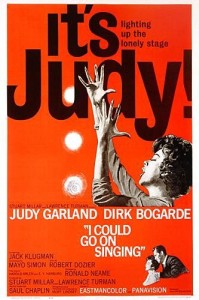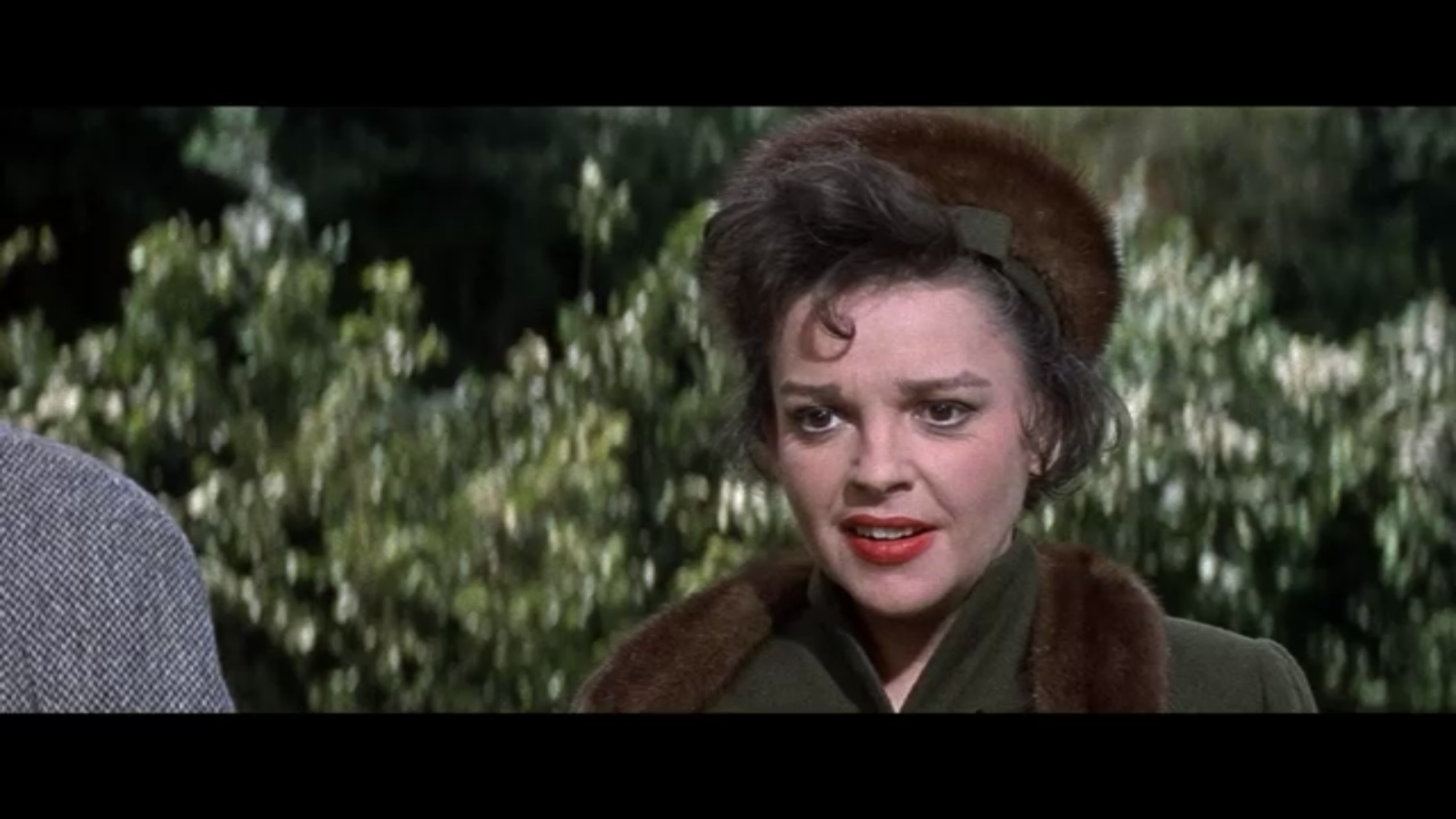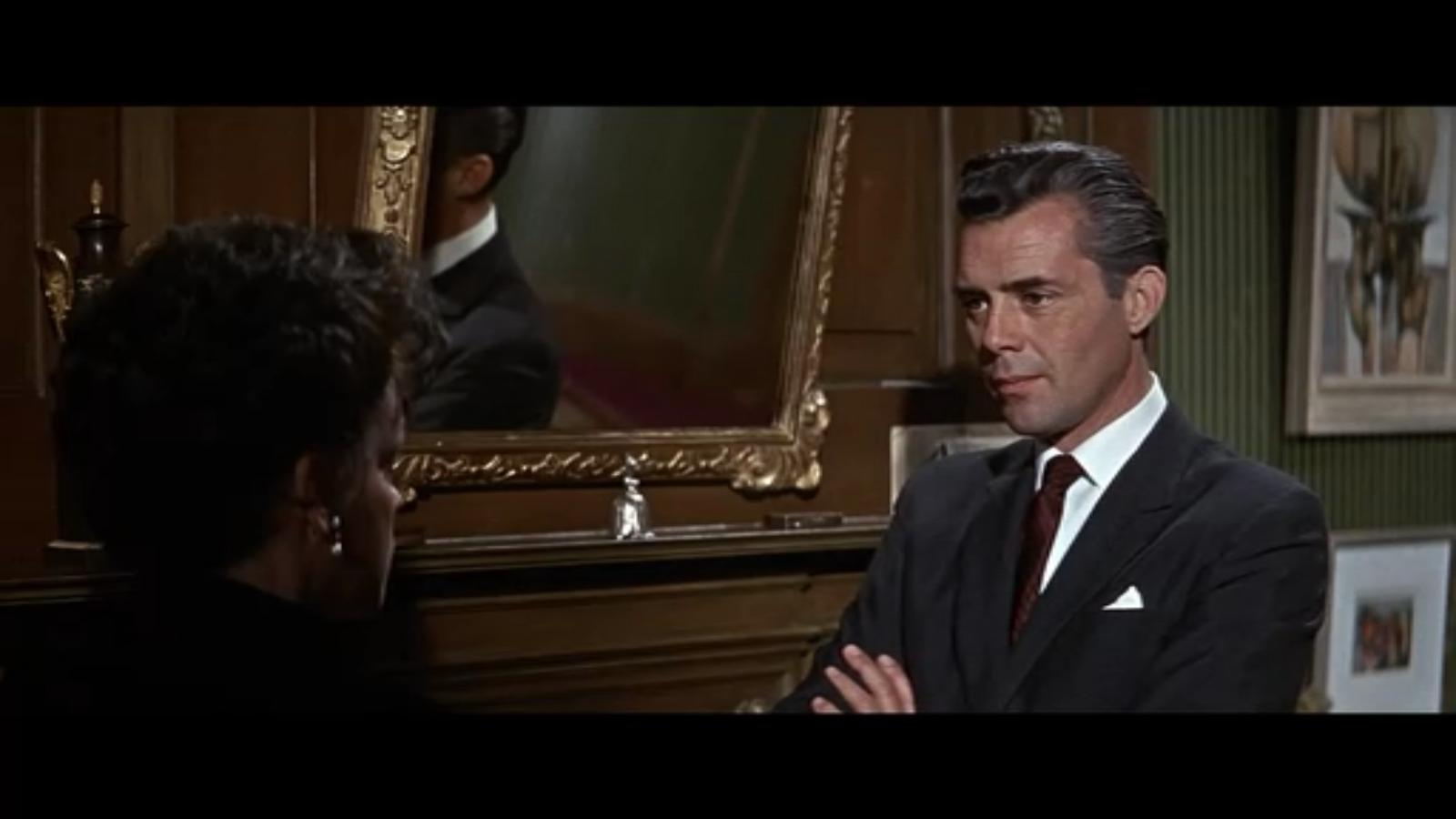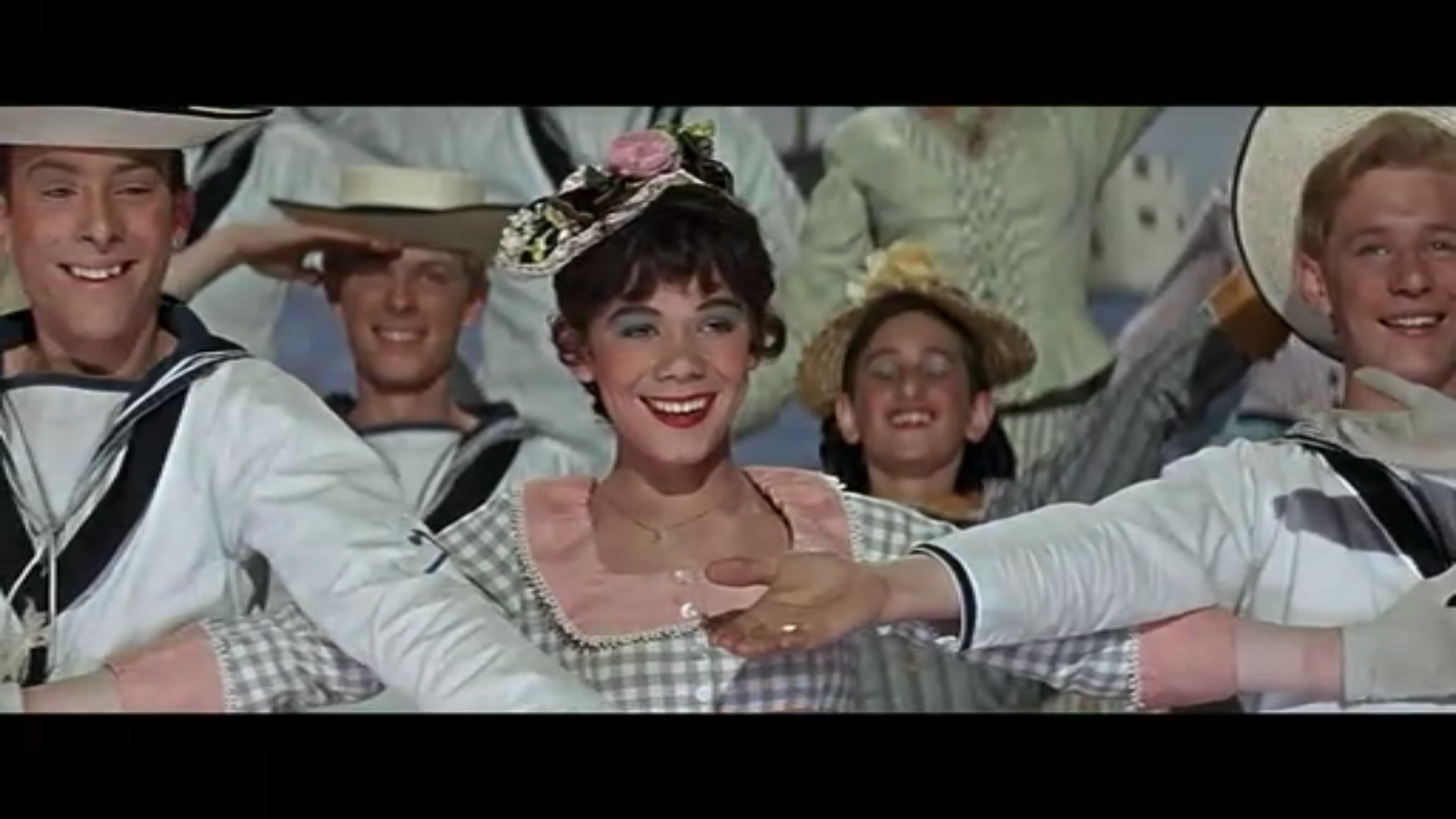|

Synopsis:
While on tour in London, world-famous singer Jenny Bowman (Judy Garland) visits her former lover (Dirk Bogarde) and asks to see her son (Gregory Phillips), who was adopted by Bogarde and his recently deceased wife years earlier. Soon Bowman finds herself wanting to spend more and more time with Phillips, much to the anger and chagrin of Bogarde.
|
|
Genres, Themes, Actors, and Directors:
- Dirk Bogarde Films
- Father and Child
- Judy Garland Films
- Musicals
- Singers
Review:
Judy Garland’s final movie — released after John Cassavetes’ A Child is Waiting (1963), though it was actually filmed before — remains a personal favorite of many diehard Garland fans, given how closely it seems to mirror certain aspects of her own fabled (but deeply troubled) existence. As a melodrama, it’s flawed and often overly maudlin; for instance, presumably to add to the film’s narrative tension, we don’t learn about the circumstances behind why Garland gave up her own child until very late (far too late) in the story — and even once we do, what we hear is simply not very convincing. [This is not to imply that someone like Bowman wouldn’t give up her own child the way she does here; just that the explanation given doesn’t suffice.] Meanwhile, Garland’s erstwhile romance with Bogarde never quite rings true, either — we see evidence of Garland’s lingering infatuation with him, but, quite honestly, wonder why they ever ended up together in the first place.
However, what saves the film from its own faults are the truly fine central performances by Garland and Bogarde, who somehow manage to transcend the limitations of both the script and their respective characterizations. Even if we (I) don’t believe in the viability of their romantic potential together, there’s nonetheless a clear “charge” between the two — one which, more than anything, comes across like immense professional respect and regard. Garland in particular immerses herself in her role to an extent light years away from her pallid performance in A Child is Waiting; more than ever before, we feel we’re being given a glimpse into the soul of Garland herself through her character here, particularly in her phenomenal final interaction with Bogarde. Phillips, for his part, holds his own admirably in the face of two such estimable co-stars; Garland’s enormous base of gay fans will surely be tickled by his cross-dressing performance in an all-boys rendition of HMS Pinafore (see still below). (What a curious choice to include in the script! It surely must have been intentional…)
Redeeming Qualities and Moments:
- Judy Garland as Judy Bowman

- Dirk Bogarde as David

- Gregory Phillips as Matt

- Garland’s final emotional interaction with Bogarde

Must See?
Yes, simply for Garland’s outstanding final performance on the big screen.
Categories
- Noteworthy Performance(s)
Links:
|





One thought on “I Could Go On Singing (1963)”
A must – for Garland’s performance, but also as a satisfying film all round.
I can’t say I agree that this is a flawed film. I find it very simple and touching each time I see it. Nothing seems forced.
It’s true that there is an undeniable “charge” between Garland and Bogarde – and I believe that is the key right there. These two characters definitely have a “professional respect and regard”. That’s mainly what gives the slight story its power – and director Ronald Neame was apparently well aware of that, helping us find our way under the skin of this difficult and still rewarding relationship. We’re not given all the answers – it’s refreshing that we have to do some of the work ourselves. (Why, for example, do Garland and Bogarde, early on, enter ‘Who’s Afraid of Virginia Woolf?’ territory? Because, in some ways, they’re rather alike?)
Bogarde has the lesser challenge (until his final scene with Garland). He’s mainly called on to be ‘the heavy’. Phillips is impressive, quite appropriately sensitive – and, yes, a charmer as a ‘girl’.
Garland is given a remarkably fitting closing to her film career (since that’s what it had to be). The story (though not at all an incidental) is there to blanket the showcase of her voice and her iconic presence. The songs chosen for her concert appearances are all quite marvelous; mostly new material which does not, happily, cause us to get sentimental about Garland’s past career. (Though she does sing ‘By Myself’, a sort of reference to Fred Astaire, who sang it in ‘The Band Wagon’.) Perhaps my favorite among her songs is “It Never Was You”. It could be the simplest song she sings here, stunning in its simplicity. (Neame has it end in a sharp cut to black. A nice touch.)
Near the film’s end, Bogarde explains to Phillips some of the specifics of his relationship with “Jenny” – and he states what many have said about Garland all along: “I loved her. I still do love her. But mark this: Jenny gives more love than anyone. But she takes more than anyone can possibly give.” (Bogarde is quoted re: how clingy Garland was during filming, calling him up in the middle of the night, etc.) It really is sad to think of Garland being that needy.
Nowadays, we get more and more on Garland’s lack of self-control. Judy Davis gave us perhaps the ultimate Garland portrait. And currently on Broadway, ‘The End of the Rainbow’ is more or less a one-woman show about Judy’s last days in London. In this retrospective way, we keep seeing how much pain Garland allowed herself to remain in. It’s simply inconceivable.
Still…we have this last film for her – which does manage to give her a sense of dignity and surrounds the myth with hope. (There’s an open-ended feeling as to how things will turn out.) Things could, of course, have gone differently: Garland could have actually filmed ‘Valley of the Dolls’ instead of Susan Hayward. In all honesty, it’s a blessing Garland went with this film behind her as a goodbye.